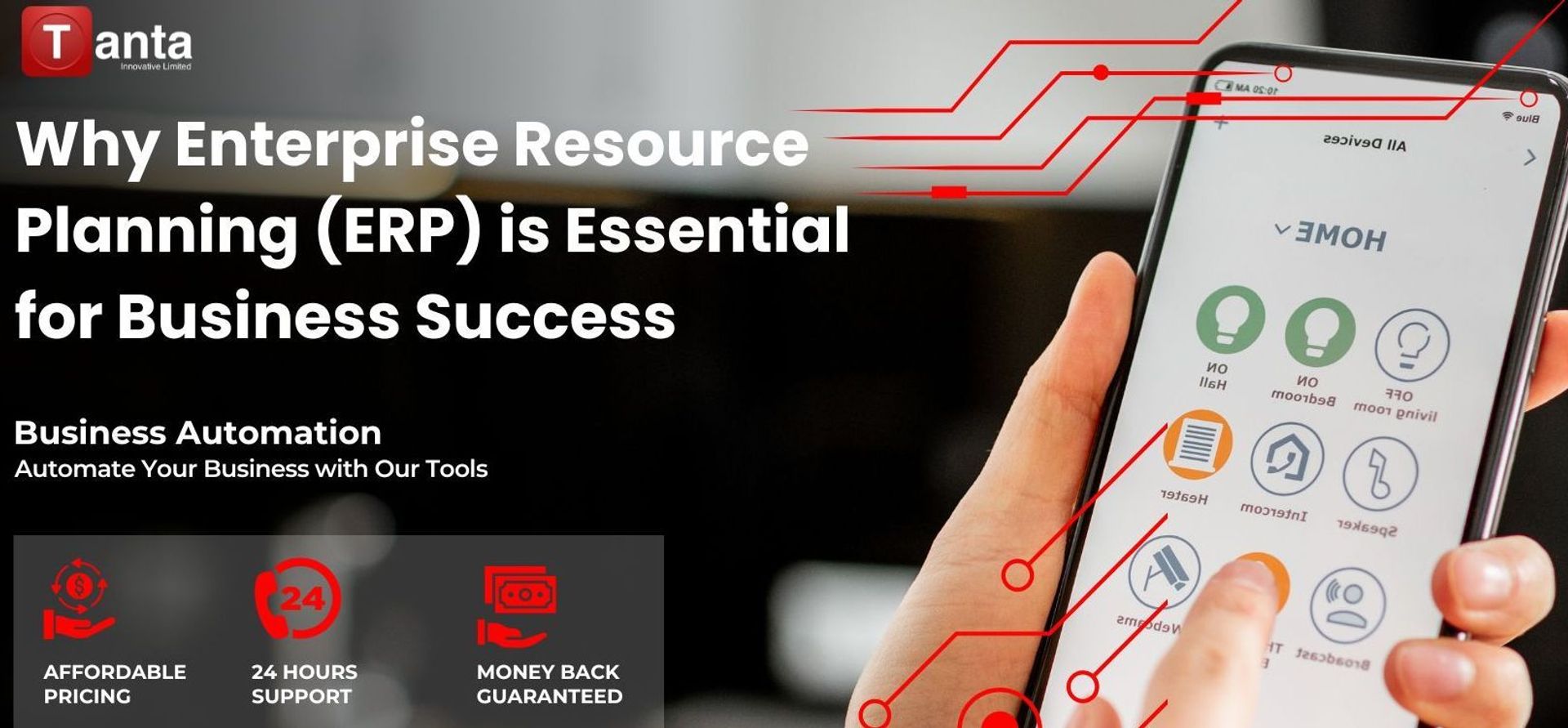The Importance of Enterprise Resource Planning (ERP)
Tolulope Arobieke
· 5 min read min read
0
0

Running a business without streamlined processes is like driving a car with fogged-up windows—you’re moving forward, but with limited visibility. This was the situation Arobs & Sons Engineering Ltd, a mid-sized Nigerian company, found itself in. Despite its 20 years of success in repairing and assembling automotive parts, the company struggled with inefficiencies that threatened to derail its growth. To clear the fog, they turned to Enterprise Resource Planning (ERP) technology, a decision that transformed their operations.
Arobs & Sons Engineering Ltd.: Challenges Before ERP
Growth brought complexity to Arobs & Sons. The company faced persistent issues with inventory management, where stock levels often didn’t align with demand. This resulted in frequent delays, frustrated customers, and higher costs. The sales team frequently found themselves in situations where they couldn't confirm product availability, while the procurement team discovered material shortages too late to act swiftly.
There was one time the company director who was an Octogenarian had to quell a looming litigation crisis as a result of failed customer service ,he was forced to embrace a technology in which he found initially unfamiliar. The willingness to change is one thing we must be very objective about as business owners. The adoption of digitalization to optimize processes is a phenomena stakeholders must be willing to bear .
This scenario is not uncommon. According to Deloitte's 2022 Global ERP Survey, 51% of companies reported operational inefficiencies as a primary reason for adopting ERP systems (Deloitte, 2022). With these challenges in mind, Arobs & Sons knew that something had to change if they were to maintain their competitive edge.
ERP to the Rescue: The Transformation Process
The path to adopting an ERP system was marked by in-depth analysis. Consultants worked closely with the company to map out processes, identify weak points in communication, and tailor an ERP solution to meet their specific needs. The chosen ERP system provided real-time visibility into operations, connecting inventory management, procurement, and sales into a single, cloud-based platform.
One of the immediate benefits was real-time inventory tracking. This allowed procurement teams to receive automated alerts when stock levels were running low, ensuring timely restocking. Similarly, the sales team could now confidently provide customers with up-to-the-minute product availability information, reducing delays and boosting customer satisfaction.
According to Panorama Consulting's 2023 ERP Report, businesses implementing ERP systems report an average improvement of 18% in inventory management efficiency and a 23% reduction in operational costs (Panorama Consulting, 2023). These figures align closely with Arobs & Sons' experience.
Measurable Benefits for Arobs & Sons Engineering Ltd.
The transformation that Arobs & Sons experienced after implementing ERP was significant. Inventory management became streamlined, reducing stockouts and overstock situations. The ERP system enabled seamless communication across departments, breaking down the silos that had previously stifled collaboration. Production schedules ran more smoothly, with fewer interruptions caused by missing materials.
Financial operations also benefited from the real-time data provided by the ERP system. Management gained quick access to financial reports, leading to better decision-making and improved strategic planning. Statista forecasts that global ERP revenue will reach $78.4 billion by 2026, highlighting the increasing importance of these systems for business optimization (Statista, 2022).
Customer satisfaction rose as well, with on-time deliveries and reduced errors contributing to repeat business. In today's fast-paced environment, the ability to deliver promptly and accurately is a major competitive advantage.
Why ERP Matters for Growing Businesses
The case of Arobs & Sons Engineering Ltd is a clear illustration of why ERP systems are vital for growing businesses. By providing a unified platform that integrates key business functions such as procurement, sales, inventory, and finance, ERP systems enable companies to operate with greater efficiency and agility. With real-time insights into operations, businesses can make faster, more informed decisions, helping them to stay competitive.
ERP systems also contribute to improved compliance and financial transparency, reducing the risk of errors and ensuring that businesses can scale effectively. Forrester Research estimates that ERP solutions can lead to a 2-4% increase in company growth through enhanced operational efficiency and cost reductions (Forrester, 2021).
Conclusion
The transformation of Arobs & Sons Engineering Ltd underscores the vital role that ERP systems play in helping businesses overcome operational inefficiencies and improve overall performance. By providing real-time visibility, enhancing communication across departments, and streamlining processes, ERP systems allow businesses to work smarter, not harder.
For companies considering investing in an ERP system, the success of Arobs & Sons serves as a powerful reminder that the right technology can make all the difference in staying competitive in a complex, fast-changing business landscape.
References
Deloitte (2022) Global ERP Survey: Modernizing Enterprise Resource Planning, Deloitte. Available at: https://www2.deloitte.com/globalERPSurvey (Accessed: 20 August 2023).
Panorama Consulting (2023) 2023 ERP Report: Trends and Outcomes in ERP Implementation, Panorama Consulting Group. Available at: https://www.panorama-consulting.com/2023-erp-report (Accessed: 20 August 2023).
Statista (2022) Enterprise Resource Planning (ERP) Software Revenue Worldwide from 2019 to 2026 (in billion U.S. dollars), Statista. Available at: https://www.statista.com/statistics/erp-revenue-forecast (Accessed: 20 August 2023).
Forrester Research (2021) ERP Adoption and Growth Benefits, Forrester Research. Available at: https://www.forrester.com/research (Accessed: 20 August 2023).
Blog Category Relationship
Sales and Marketing Representative
More from Tolulope Arobieke

Top Trends in Cloud Computing for 2024
Cloud computing continues to revolutionize the way businesses operate, offering unparalleled flexibility, scalability, a...

Key Considerations for Effective Cloud Solutions.
Businesses are rapidly embracing cloud technology to streamline operations and maintain a competitive edge. By leveragin...

How to Align Digital Transformation with Your Business Strategy for Success
Aligning digital transformation with your business strategy is crucial for driving sustainable growth....

Running a Sales Team with a Value-Based Pricing Game Plan in the Tech World
Selling high-tech solutions isn't just about pricing—it's about understanding your customer's unique challenges. Discove...
Related Articles
Discover more insights and stories from our collection of articles

The Role of Microinteraction in Enhancing User Experiences
Microinteractions enhance digital experiences with subtle feedback, brand personality, and intuitive guidance, making interactions

9 Docker tips you didn't know you needed
Docker is essential for modern development, but beyond the basics, there are some powerful tips to optimize security, efficiency, and reliability. Here’s a look at nine must-know Docker tips

Building Flexible and Scalable UI Systems with Atomic Design
Explore the next evolution of Atomic Design: build flexible, scalable UI systems with dynamic components, design governance, and strategies to future-proof your product.
